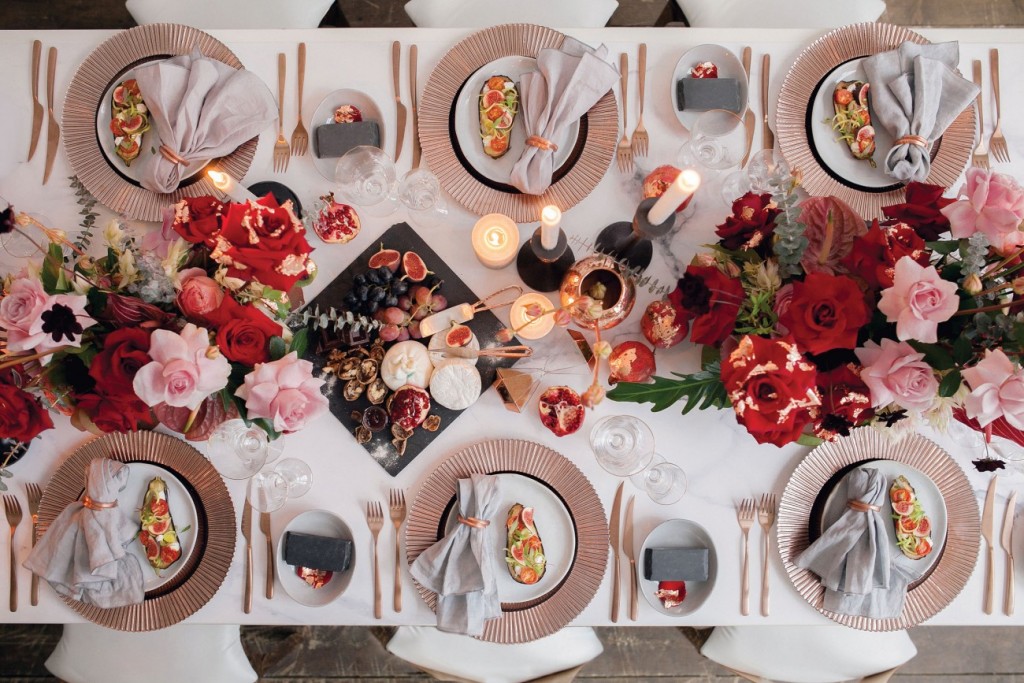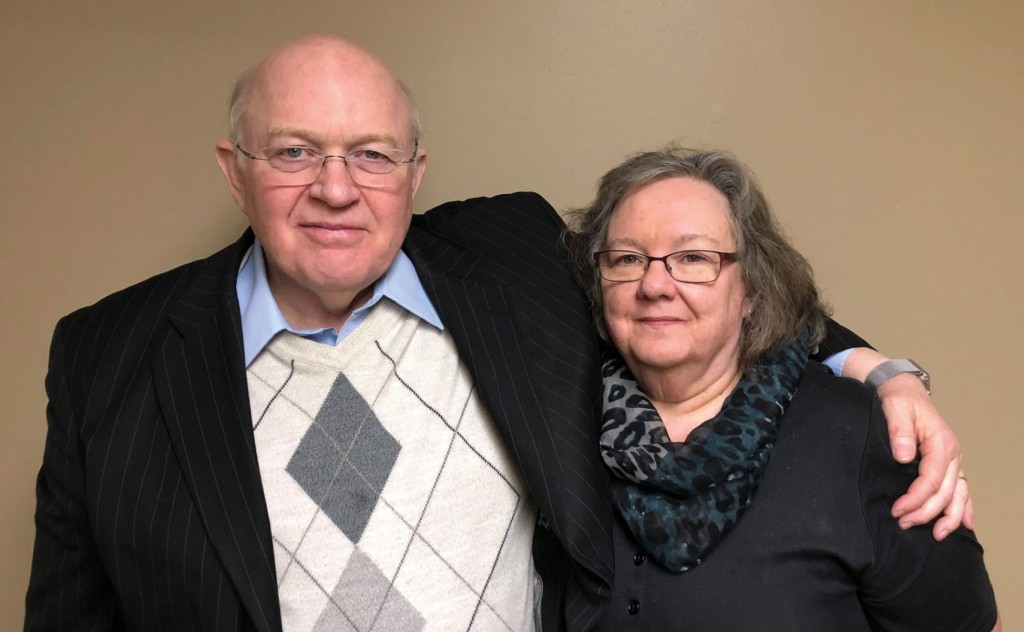You have free articles remaining this month.
Subscribe to the RP Witness for full access to new articles and the complete archives.
The house has been vacuumed and dusted. Lovely china, folded cloth napkins, and a centerpiece of fresh flowers adorn the table. The kitchen overflows with the delectable scents of the delicious meal to come. You, the host or hostess, are relaxing with a good book as you wait for your guests to arrive.
That might be the perfect Martha Stewart moment, but in our house it is rarely the reality! Have you ever forgotten to turn on the oven? Burnt the rolls? Forgotten you had carrots in the microwave or salad in the refrigerator? Greeted your guests with a dust rag in hand? Had your skunk-scented dog greet you daughter’s future fiancé? Had a casserole dish explode in the oven? That is my reality.
Before we were married, my husband gave me Edith Schaeffer’s book Hidden Art; I was fascinated. Although the book deals with everything from gardening and flower arranging to clothing and interior decorating, what caught my attention was the description of a woman who loved being a homemaker, who loved having people in her home, and who didn’t panic when guests showed up at meal time—and all she was serving was warmed-over soup and crackers. Her desire was to be hospitable and to use the beautiful things God had created to make her home inviting and comfortable. Never mind Martha Stewart—I wanted to be an Edith Schaeffer. Have I attained that status? No, but I’m still working on it.
I love to cook, so I was especially drawn to Schaeffer’s chapter on food. She presents the world in which we live as created by a God who gave us orange carrots, blue blueberries, red raspberries, pink salmon, and a variety of green vegetables. He made our food to taste good and to be beautiful. There is art in the food God has given us. We should use the taste and variety to His glory.
I am always trying new recipes, experimenting with new-to-me techniques, and using church fellowship meals as an outlet for these trials. Sometimes that is not a good thing! Early on, I learned that a clove of garlic is not the same thing as a bulb of garlic. I also learned that just because cornstarch comes in a yellow box, it doesn’t mean that the yellow box you grabbed off the shelf is cornstarch (sometimes it turns out to be baking soda). Disasters happen. A good hostess learns to accept them graciously and should always have a Plan B—as in a couple cans of soup and a box of crackers in the pantry.
God commands us to be hospitable. Some have a gift for hospitality. For others, the idea of hosting anyone in their home is a nerve-wracking experience. Nevertheless, we are commanded to be hospitable and to practice hospitality. I don’t think that even the most naturally gifted pianist sat down at the piano for the first time and played a flawless concerto. Being hospitable is the same. It takes practice. If you have never had anyone in your home, start small. You don’t need to serve a five-course meal. A simple cup of coffee or even a glass of water is a beginning. Remember, your guest is there because they want to spend time with you.
My husband and I will be married for 46 years this May. During those four-and-a-half decades we have invited many people into our home to share a meal or to spend the night. I still get nervous when people I do not know come into our home. Even after all this time, I still have to make a conscious effort to remind myself that they are there to spend time with us. They are not there to inspect the house for cleanliness or to rate the food set before them; they are there to see us. I repeat that often.
Some of the memorable events in my hostessing “career” include welcoming the Pinsons into our farm home and immediately leaving to roundup escaped cattle. Tom Pinson decided to ride along with me. It was embarrassing to be seen in my cattle-rounding-up-clothes and to leave so abruptly. Tom has graciously reminded me on several occasions how much fun it was to take part in that particular farm chore.
Once I hosted 25 people for Christmas dinner. The men had had a great hunting season, and so I was roasting a number of quail and pheasant as the main attraction for the meal. It was to be a real delicacy until the casserole dish they were in exploded, sending shards of glass all over the oven and into the meat. So much for that special dinner.
When you have a visiting pastor (J. Paul McCracken) at your home for the evening, and you sit down to talk in the quiet following dinner, there is nothing quite like hearing a mouse trap snapping on its prey just behind said pastor. I can laugh now, but I was mortified then.
I remember fondly the relaxed hospitality shared among neighbors, many non-Christian, while I was growing up. On Saturday mornings, my parents would welcome a family into our home for doughnuts and coffee. On hot summer evenings, we would cross the street and sit together on someone’s front lawn with iced tea or Coke. Neighbors felt free to come to our home, and we felt free to stop in at theirs. We knew our neighbors, because we shared our homes and ourselves with them. Through this, we had opportunities to witness.
Our lives today often isolate us from our neighbors. No one sits on their front porch, because there are no front porches. We have air conditioning, cable TV, computers, etc., that keep us inside. We drive into our attached garages, click a button to close the door behind us, and never have the opportunity to do more than wave hello to the people living just a few feet away. Life in the 1950s might be cliché, but there is something desirable about the comfortable openness and hospitality we shared with our neighbors.
This past summer, my husband and I moved to a home built in 1842 in downtown Kokomo, Ind. One of the features that drew us to the house was its wide front porch. During the cool of the summer mornings, I often sat on the porch with our dog, and quite a few people stopped to chat. They were enamored with our dog and would come up to pet her, but it gave me an opportunity to sit and talk with them. By the way, the attraction of people to cute dogs is why we got her in the first place. Cute babies and dogs are a great way to meet people!
A word about hospitality at church. Greeting visitors when they first enter the building and making sure they have a bulletin, know where the bathrooms are, and where they can find a quiet room to take an upset baby, if necessary, just makes sense. If you provide a nursery, then offer to show them where that is, but do not imply that they are expected to use it. In many Reformed Presbyterian churches we have visited, there is at least one family who prepares extra food each week so that they can invite visitors for a meal following worship. What a great way to welcome strangers into our midst.
At Sycamore RPC we have, for many years, had a fellowship meal following morning worship on the first, third, and fifth Lord’s Days. We have a fellowship supper after evening Bible study on the even weeks. At all of these meals, we follow an orderly procedure. We do not assign food, but we ask each member family to bring enough food (main dish, side, and dessert) to feed their family plus a couple extra people. This ensures that we have enough food for any singles or guests who attend worship that day. The meal is placed on the serving tables, everyone sits down, visitors are introduced, a psalm is sung, and a blessing is asked. Tables are called in order to get their food. Children are not allowed to serve themselves; they must have a meal buddy (an older teen or an adult) to help them. Dessert is not put out until the main meal is over.
Similarly, when I visit churches and they have fellowship meals, I find it welcoming and helpful to have an orderly routine.
Although a slightly different angle to hospitality, our congregation provides two weeks of meals to new parents and to families where the main cook has had surgery or is otherwise incapacitated. The sign-up list is quickly filled with volunteers.
The rewards of welcoming people into your home or church are too numerous to list. Just knowing that you have provided a bright spot in someone’s life, and that you did it for God’s glory, is enough. If you want to know more about being a hospitable Christian, I highly recommend Edith Schaeffer’s Hidden Art and Rosaria Butterfield’s The Gospel Comes with a House Key. Remember, showing hospitality is a command to all of us, and, therefore, is a skill worth practicing.
Sharon McKissick is married to Robert. They are members of Sycamore (Kokomo, Ind.) RPC. They have four children and 22 grandchildren. Her hobbies are cooking, quilting, and reading.

